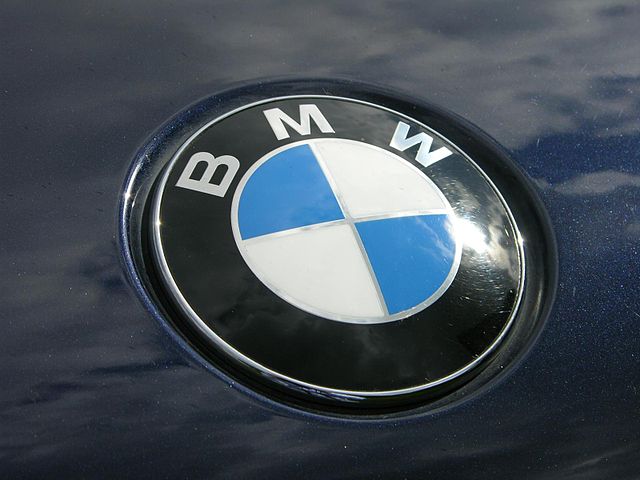Cars and Drivers
U.S. Auto Quality Crushed Again as Trend Toward Imports Returns
Published:
After many years of quality improvement, according to most industry research, U.S. car companies apparently have fallen back into old habits. New data from the American Customer Satisfaction Index (ACSI) shows that cars made by non-U.S. manufacturers have eclipsed those of the Big Three in terms of how consumers view the quality of their vehicles.
The new survey puts Mercedes (with a score of 88 out of 100) and Toyota Motor Corp.’s (NYSE: TM) luxury brand Lexus (87) at the top of the list, which is not unusual based on results from other research studies. Toyota (86) and Honda Motor Co. Ltd. (NYSE: HMC) (86), also near the top, have moved back up on most lists after a period in which American cars had caught or even passed them in polls. Toyota’s demise may have been caused by recalls that hit millions of its cars. The public apparently has forgotten that.
Among the Big Three, the worst news was for Chrysler, which usually underperforms in studies from research firms like J.D. Power. Its Jeep (80) and Dodge (79) units were in the cellar, with General Motors Co.’s (NYSE: GM) biggest division — Chevrolet (79) — its only car brand with them. The blow is particularly bad for GM because Chevy represents such a large portion of its sales.
Kia and Hyundai, the South Korean stablemates, posted scores that may indicate that the scandal over how they calculated mpg and the changes they had to make after the federal government caught them continue to hurt each brand. Kia’s score of 82 put it very near the bottom. Hyundai posted the same score.
ACSI officials made two negative comment about Detroit:
Although the drop in customer satisfaction affects most automakers, Detroit is losing ground to imports. The customer satisfaction gap relative to imports is now the widest in five years. As recently as 2010, Asian and domestics were tied in customer satisfaction, but Asian carmakers have now reestablished a significant advantage.
And:
U.S. automakers may be stretched too thin, ramping up production to meet rising demand. This becomes problematic once demand slackens, making further sales growth more challenging unless customer satisfaction improves. At more than full capacity, it is not unexpected that quality may give way to quantity.
American car companies have weak quality control when they have to meet customer demand, a damning comment.
As for the entire industry:
Customer satisfaction with automobiles and light vehicles declines following back-to-back years of improvement, falling 1.2% to an ACSI benchmark of 83. The slide comes at a time when sales of both domestic and import brands are surging. The industry’s sales growth is most likely due to pent-up demand coupled with inexpensive financing and a resurgence in dealer incentives.
Company 2012 2013 % Change
Automobiles & Light Vehicles 84 83 -1.2%
Mercedes-Benz (Daimler) 85 88 4%
Lexus (Toyota) 89 87 -2%
Subaru 87 86 -1%
Toyota (Toyota) 85 86 1%
Honda 83 86 4%
Cadillac (GM) 86 85 -1%
GMC (GM) 80 85 6%
Volkswagen 85 84 -1%
Acura (Honda) NM 83 NA
Ford (Ford) 83 83 0%
Nissan 83 83 0%
Chrysler (Chrysler) 78 83 6%
Buick (GM) 87 82 -6%
BMW 86 82 -5%
Hyundai 85 82 -4%
Kia 82 82 0%
Mazda 82 82 0%
All Others 82 81 -1%
Jeep (Chrysler) 83 80 -4%
Chevrolet (GM) 84 79 -6%
Dodge (Chrysler) 81 79 -2%
Methodology: The August 2013 ACSI report on automobiles is based on interviews with 4,078 customers, chosen at random and contacted via telephone and email between April 6 and May 22, 2013. Customers were asked to evaluate their recent purchase and experiences with automobiles manufactured by the largest companies in terms of market share, plus an aggregate category consisting of “all other” and thus smaller auto nameplates.
Credit card companies are pulling out all the stops, with the issuers are offering insane travel rewards and perks.
We’re talking huge sign-up bonuses, points on every purchase, and benefits like lounge access, travel credits, and free hotel nights. For travelers, these rewards can add up to thousands of dollars in flights, upgrades, and luxury experiences every year.
It’s like getting paid to travel — and it’s available to qualified borrowers who know where to look.
We’ve rounded up some of the best travel credit cards on the market. Click here to see the list. Don’t miss these offers — they won’t be this good forever.
Thank you for reading! Have some feedback for us?
Contact the 24/7 Wall St. editorial team.